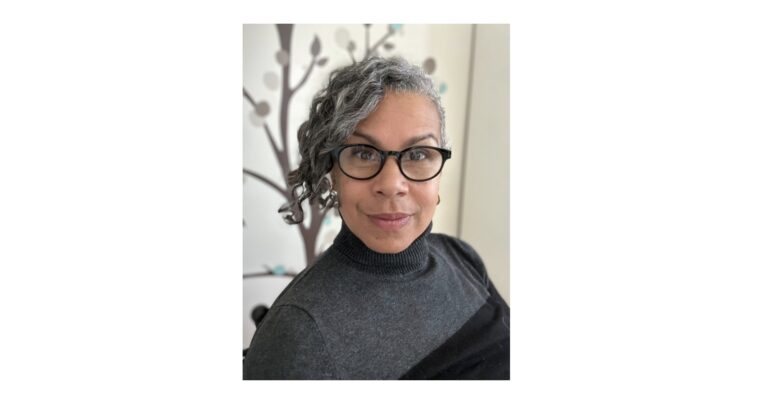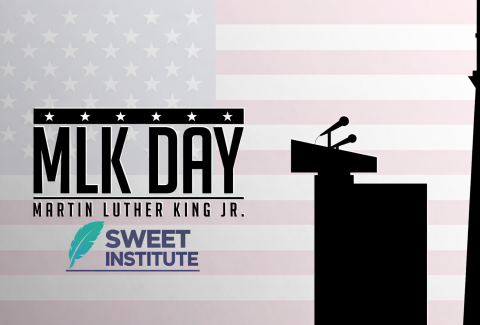Sarah Russ’s Journey: A Lifelong Commitment to Social Work and Empowering Communities
Sarah Russ’s journey through social work exemplifies resilience, adaptability, and a deep commitment to empowering individuals and communities. With over three decades of experience across multiple states and a diverse range of roles, Sarah has carved a unique path that reflects her passion for helping others and her dedication to social justice. This, in turn, has shaped her professional identity and impacted countless lives along the way.
A New Path: Discovering Social Work
Initially drawn to education, Sarah’s journey took an unexpected turn during her college years. After realizing that a traditional teaching role would confine her, she sought guidance from her advisor, who introduced her to the world of social work. Intrigued by the dynamic nature of the field, Sarah decided to pursue a career where she could triage and support individuals facing various challenges. This choice marked the beginning of her lifelong commitment to social justice and community empowerment.
Early Experiences: Building a Foundation
Sarah’s first role as a case manager with Big Brothers Big Sisters ignited her passion for direct service. She quickly mastered her responsibilities, finding fulfillment in connecting with families and supporting youth. However, she soon faced the challenges inherent in the profession. A conflict with a case manager prompted her to lean into discomfort rather than retreat, demonstrating her growth mindset and commitment to the people she served.
Throughout her early career, Sarah’s experiences highlighted the systemic inequalities affecting marginalized communities, particularly Black and Brown youth. These formative encounters fueled her passion for addressing disparities in educational outcomes and mental health access. Her work in various settings—including group homes, schools, and community programs—exposed her to the complexities of family systems and the importance of culturally competent care.
Clinical Social Work: A Shift to Deeper Impact
After gaining significant administrative experience, Sarah returned to clinical work with a renewed sense of purpose. She realized that working directly with individuals could create rippling effects in their lives and communities. Her understanding of family dynamics and systemic issues shaped her therapeutic approach, emphasizing the need for culturally relevant and trauma-informed care.
Sarah’s dedication to youth empowerment led her to work in a high school setting, where she observed the critical need for support systems to help students navigate their challenges. Her insights into the connection between educational struggles and mental health deepened her commitment to fostering resilience in young people.
Embracing Change and Growth
The journey to clinical licensure in Maryland was not without its hurdles. Sarah faced the challenge of starting anew in a different state, where her extensive experience did not immediately translate into clinical opportunities. Undeterred, she embraced this transition, shifting back into direct practice, ultimately founding her own private practice. This evolution allowed her to integrate her passions for direct client work, education, and consultation—creating a unique trifecta that aligns with her vision for her career’s second half.
As a liaison with the University of Maryland School of Social Work, Sarah remains committed to cultivating the next generation of social workers. She recognizes the profound impact that mentorship and education can have on emerging professionals, emphasizing the importance of grounding oneself to prevent burnout in the demanding field of mental health.
Embracing the Private Practice Model
The onset of the pandemic prompted a significant shift in Sarah’s career. Facing challenges in her previous roles, she ultimately decided to establish her own private practice, allowing her to maintain a larger caseload while providing personalized care. This decision, though initially daunting, reflected her loyalty to her clients and her belief in the transformative power of therapy.
Sarah’s ability to adapt to the evolving landscape of mental health care is a testament to her resilience and creativity. By building her practice, she created a space where she could combine her passion for direct service, education, and consultation—aligning her career with her values and goals for the future.
Reflections on a Lifelong Journey
As Sarah reflects on her journey, she acknowledges the role of her personal experiences, and how they have shaped her understanding of the nuances of identity within the social work field, motivating her to advocate for a more inclusive approach in practice and policy.
Sarah Russ embodies the spirit of adaptability and lifelong learning in social work. Her journey—from aspiring teacher to dedicated social worker and clinical practitioner—illustrates the profound impact one individual can have on the lives of many. As she continues to navigate the complexities of mental health, Sarah remains committed to advocating for systemic change, supporting families, and inspiring future generations of social workers to embrace their passion for service.
A Legacy of Empowerment and Advocacy
Throughout her career, Sarah has championed the voices of those who often go unheard. Her personal experiences have informed her understanding of identity, culture, and the importance of representation in social work. This perspective fuels her advocacy for equity and inclusion within the profession and beyond.
Sarah’s journey reflects the evolving nature of social work and the profound impact of dedicated practitioners. By continuously seeking opportunities for growth and understanding, she exemplifies what it means to be a compassionate and effective social worker. Her commitment to empowering others will undoubtedly inspire the next generation of social workers to pursue their passion for making a difference.
A Vision for the Future with the SWEET Institute
Sarah’s commitment to fostering meaningful relationships and supporting marginalized communities aligns with the mission of the SWEET Institute. She believes that integrating social-emotional learning and trauma-informed care is vital for equipping both practitioners and clients to navigate the complexities of mental health. By embracing the principles of the SWEET Institute, Sarah seeks to create a nurturing environment that empowers individuals to reclaim their narratives and heal from past traumas.
Conclusion: The Power of Connection
Sarah Russ’s story serves as a powerful reminder of the importance of connection, resilience, and advocacy in social work. As she continues to navigate the complexities of her career, her journey underscores the transformative potential of social work in fostering healing, growth, and empowerment within individuals and communities. Through her dedication, Sarah not only impacts the lives of those she serves but also paves the way for future generations to challenge the status quo and advocate for change.
In a world where mental health challenges are increasingly prominent, Sarah’s story is a beacon of hope, illustrating that with resilience, empathy, and a commitment to growth, transformation is not just possible—it is inevitable.
Sarah Russ is a licensed clinical social worker in Maryland, Washington, DC, New York, and Virginia. With over 30 years of professional experience, she has worked with children, adolescents, adults, and seniors. Sarah holds a Bachelor’s in Social Work from Slippery Rock University in PA and a Master’s in Social Work from the University of Pittsburgh. From the beginning of her career, she knew that supporting vulnerable individuals would be central to her purpose and contribution to society.
Initially focused on Family Systems, Sarah worked with adjudicated youth, providing individual, group, and family therapy. Her career quickly transitioned to administration, where she provided supervision and program management in outpatient and community-based settings across Western Pennsylvania and Brooklyn, NY, for 16 years. During this time, she supervised more than 30 developing social workers as student interns in various programs.
In 2017, Sarah returned to clinical practice, completing her clinical hours and supervision in community settings around Baltimore. Today, she runs a virtual private practice offering individual and couples therapy to adults. Her therapeutic approach integrates Family Systems, Attachment Theory, CBT, TF-CBT, and EMDR.
In addition to her private practice, Sarah serves as a Faculty Field Liaison and Seminar Instructor at the University of Maryland’s School of Social Work, currently working with her seventh cohort of MSW interns. She also provides clinical consultation and training to organizations supporting human services professionals.







